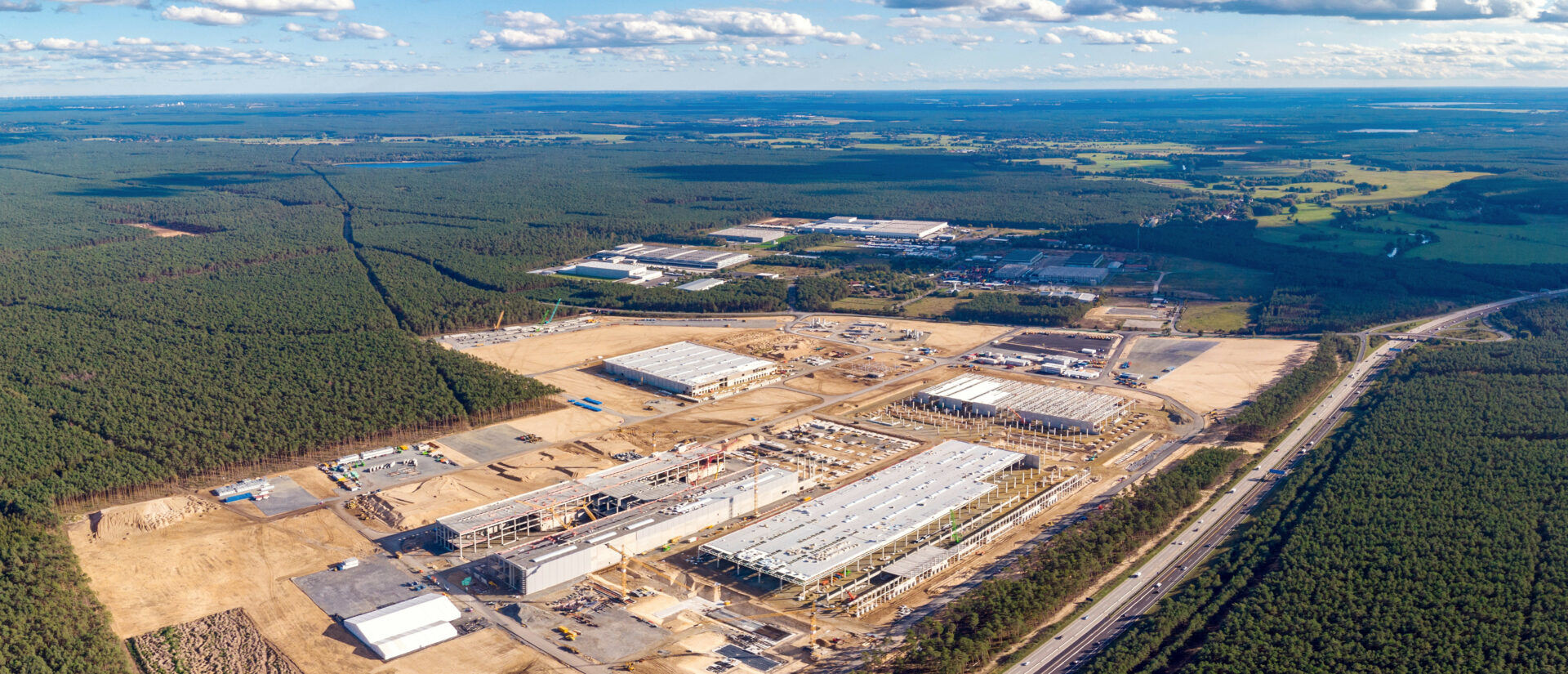
Electric vehicles are a good thing – but not if everybody owns one
As the EU prepares to formally approve a new regulation to improve the sustainability of batteries used in electric vehicles, SOMO has published a powerful set of data visualisations(opens in new window) showing the huge planned increase in so-called “gigafactories” to produce these power units. These mammoth factories will consume vast amounts of non-renewable resources, mostly extracted in the Global South.
The production capacity of the growing number of lithium-ion (Li-ion) battery gigafactories is expected to increase almost eightfold between 2021 and 2031, mainly in the US, the EU, and China. Many involve big name car companies like Volkswagen, Mercedes-Benz, and Tesla, whose motivation is to increase consumption of personal vehicles.
“Electric vehicles are part of the solution to climate change. But the size and sheer volume of planned EV production is not sustainable,” said SOMO expert Alejandro González. “We cannot consume our way to a cleaner, greener future. We need fewer cars, smaller cars, and more sustainable public transport options. This should be at the core of EU energy transition policy.”
The New Batteries Regulation(opens in new window) is one of a suite of polices that underpin the EU’s approach to the energy transition. Later this month the EU will publish its Critical Raw Materials Act(opens in new window) , a draft law that aims to ensure the EU can access the minerals needed to support industries involved in renewable energy and transport. The EU aims to “tilt the balance of power” in its favour in critical supply chains for what it terms “the new oil and gas”. The EU’s approach pays lip service to reducing demand for extraction of new raw materials, but this is belied by its efforts to increase EU access to the minerals, and by the focus on using trade and development policies as leverage.
“The EU is regulating batteries with one hand, but driving demand for minerals for the same batteries with the other; this is incoherent as a policy and continues to treat resource-rich countries like Argentina, Chile, DRC, and Indonesia as mere sources of materials,” said Alejandro González.
While EVs have no tailpipe carbon emissions, their production generates serious negative impacts, particularly in the countries where the minerals to produce Li-ion batteries are extracted. The demand for lithium and nickel is set to skyrocket in the next five years as a result of mass adoption of EVs in Europe, the US, and China. While the adoption of EVs in these regions is heavily incentivised by subsidies, tax breaks, and emission reduction targets, the extraction of minerals to produce them generates large amounts of waste. Activists in some source countries have already raised concerns about human rights abuses and disenfranchisement of Indigenous peoples.
The vast majority of EVs that will be produced in the next seven years will sell to consumers in the US, Europe, and China, and exclude most of the rest of the world. Commentators on the energy and transport transition have noted that this two-tier picture of “haves” and “have-nots” adds new dimensions of global inequality.
“The EU has an opportunity here – to avoid being responsible for driving abuses and deep inequality in the energy transition. But that opportunity is slipping away,” said González. “A fundamental shift in the EU’s paradigm is necessary, fostering a vision of transport that does not involve near-universal personal vehicle ownership in the European region.”
The EU’s current sustainability policies do little to address the underlying problem of unsustainable consumption. Under the current transition, despite the introduction of EVs, the global fleet of vehicles (including petrol and diesel cars) is forecast to continue to grow. With more cars on the road, it is unlikely that the transport sector can reduce global emissions to the levels needed to limit global warming to the 1.5°C or even 2°C scenarios.
“We must not slow down the urgent shift away from fossil fuels. EVs are part of the solution. But we cannot repeat the mistakes of the fossil fuel era,” said González. “A just energy transition is imperative, but under current policies of the EU, US, and China, it is out of reach. This has to change, and change fast. We need to reduce reliance on individual cars and travel in more sustainable ways. Moving towards this vision has to become the core of public policy, and governments must shift their approach – and their budgets – to enable, educate the public about, and incentivise this paradigm shift.”
Do you need more information?
-

Alejandro González
Senior Researcher
Related content
-
European Parliament approval of draft Batteries Regulation is a welcome step towards just energy transitionPosted in category:Published on:Statement
-
 Electric vehicle boom taking heavy social and environmental tollPosted in category:News
Electric vehicle boom taking heavy social and environmental tollPosted in category:News Alejandro GonzálezPublished on:
Alejandro GonzálezPublished on: -
The battery paradox Published on:
 Alejandro GonzálezPosted in category:Publication
Alejandro GonzálezPosted in category:Publication Alejandro González
Alejandro González
-
 How the green energy transition fuels human rights abuses in South AfricaPosted in category:News
How the green energy transition fuels human rights abuses in South AfricaPosted in category:News Alejandro GonzálezPublished on:
Alejandro GonzálezPublished on:

